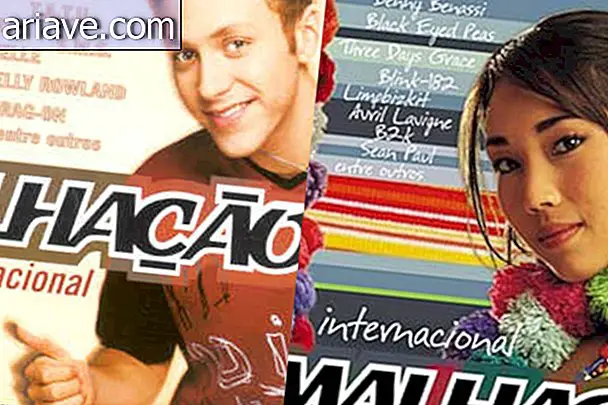7 craziest and hard to learn languages
The difficulty in learning new languages may vary from person to person for different reasons. But with a good teacher and a little effort and dedication, no language is impossible to assimilate.
Of course, because of distance, differences in alphabets, phonetic variations and even obscure techniques for constructing or pronouncing words, some languages stand out in terms of difficulty.
Here are some of the most difficult languages to learn and explain the reasons why they are so complex.
Tuyuca
Chosen by The Economist as the most difficult language in the world, tuyuca comes from the Colombian and Brazilian Amazon and is spoken by less than 1, 000 people. Words are formed through clumps of sounds that mean something. For example, the word “hóabãsiriga” means “I can't write”.
The language has about 140 genres. Tuyuca pronoun classes are not only limited to definitions related to reproductive organs, identity or social role, but also groups of objects that need to have a specific definition and construction within sentences.
There is a specific genre for a bark that does not stick to the tree, and this same class can also be used for baggy pants or wet wood that has begun to crumble.
In addition, tuyuca also has two different words for “us”, which vary to include or exclude the person you talk to. Sound complicated enough? Calm that there is more.
This is an evidential language, so the only way to say something is to end the sentence with a specific verb that provides information on how you know it to be true. When you know something because you saw it happening, you need to end the sentence with "-wi", while when you just believe it to be true, you need to complete it with "-hiyi".
! Xóõ
! Xóõ is a language spoken by about 3, 000 people in southwestern Botswana, in which people communicate through tongue-in-the-mouth cracks. It is common for adults who master the language to develop a laryngeal nodule because of the process involved in learning to make sounds.
The alphabet has about 26 vowels and 122 consonants, but the exact number is not a consensus between linguists and historians, who are divided between different theories and interpretations of sounds and different tones (ups and downs) of the language.

Some researchers point out that! Xóõ, or something quite similar to language, would be the oldest language in the world, and as humanity migrated to other regions, people unlearned the distinctive clicks.
Silbo gomero
Learning to whistle is not so difficult, but mastering a fully articulated language through these sounds seems like an arduous task. The name of the language means "gomero whistle" because it comes from the La Gomera region of the Canary Islands.

While other cultures invest in hundreds of different sounds, the sybo gomero has an alphabet composed of only two vowels and four consonants. Sound variation can be simple, but it takes a lot of breath to communicate in that language.
A person with more language skills could communicate news and celebrations over distances of up to three kilometers. This feature was very useful in a mountainous region, preventing people from moving just to give small messages. It just wouldn't be so practical to tell a gossip, because the language speakers can also clearly distinguish where the sound came from.
Silbo gomero is the only whistle-based language that is fully developed and practiced by an expressive community of over 22, 000 people. It was passed from parents to children, but began to be taught in schools in 1999 and is spoken by the vast majority of La Gomera inhabitants.
In 2009, the language was declared by UNESCO as the oral and intangible heritage of humanity to prevent its disappearance. The concern is well founded, as falling into oblivion has already occurred with other hissing languages of the Canary Islands.
Pawnee
Pawnee is a native language of some North American Indian tribes located in Oklahoma. It is a polysynthetic language that groups different morphemes with different meanings from the root of a noun or verb.
An easy example is "kutatii'i" which means "this is mine" and is made up of smaller words that indicate possession and existence. It may sound simple, but other words that are pretty easy in Portuguese can get pretty confusing in Pawnee.
“Barber shop” in the language would be “iririiraktahkictapiriwu”, which is a word composed of a description of what the establishment would be like and “hatkaahuhtiirahpuh” means “digging a ditch or well around a residence to prevent infiltration or around a yard to prevent flow".
Archi
This language spoken in a region in southwestern Russia has no less than 1.5 million endings for each verb. As if that wasn't hard enough, there are verb modifiers for four genres as well as number and other minor nuances that may indicate possibility, doubt, or certainty.

Despite the numerous variations and verb endings, the number of people who speak the language fluently is restricted to only one village with about 1, 200 inhabitants.
Until recently, there were virtually no written records of the archi, and the few that existed were made with the Roman alphabet. In 2006, a spelling based on the Cyrillic alphabet was developed and used in an archi-russian-english dictionary.
let's go

Bora, boru or miraña is a language spoken by indigenous tribes in northern Peru, northwestern Brazil and southeastern Colombia by about 2, 500 people. This is the language with the most “genres” in the world, with no less than 350 classes of pronouns.
Ubykh
Ubykh is a language spoken in Turkey and in Sochi, Russia. It has about 80 consonants and only 2 vowels, four of which are only found in onomatopoeia or foreignness.
There is no standardization for Ubykh writing, and some of the written accounts are written with a mixture of the Latin alphabet and the international phonetic alphabet, while other accounts use the Cyrillic alphabet.
The descendants of the Ubych people try to rescue and relearn the language, but it has been considered dead since 1992, when Tevfik Esenç, the last person known to speak fluent Ubykh, died at 88.
However, to prevent language from being lost forever, several linguists have been able to record audio and make extensive notes about it, keeping records for future generations.

Despite being unique and curious languages, they are becoming less and less adept at globalization and modernization. Some researchers estimate that about half of the languages spoken today may disappear in a century, and linguists around the world try to record everything they can before oral culture that has been maintained for generations in isolated small tribes is completely forgotten.











